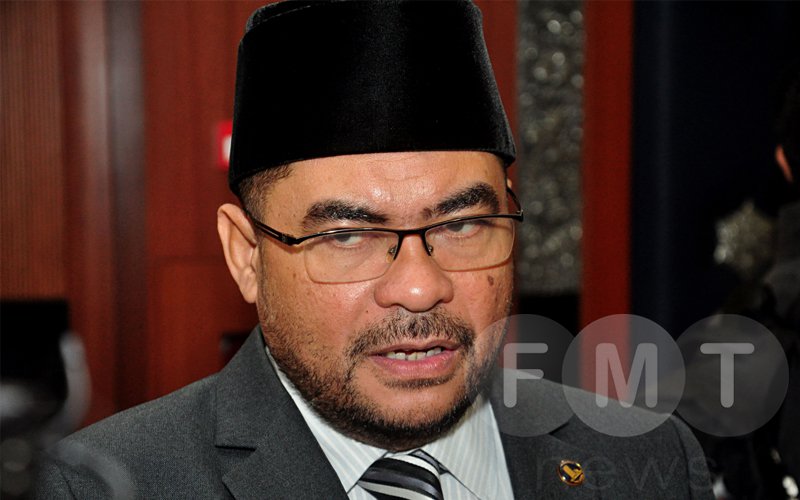Hate speech is wrong, even against ‘deviant’ Shias, says Mujahid

(FMT) – Mujahid Yusof Rawa, the minister in charge of Islamic affairs, agrees that no one should be persecuted for their beliefs, including Muslims who follow Shia teachings, which Islamic authorities in Malaysia label as “deviant”.
The Amanah leader said the debate on Shia Muslims in Malaysia was made complicated by those who put forward a narrative that borders on hate speech.
Mujahid said the line must be drawn when it came to hate speech against Shias, despite a 1996 fatwa banning Muslims from practicing the second biggest denomination in Islam.
“I can call on people to accept Sunni Islam but it doesn’t mean if a person is a Shia, I have the license to belittle them or utter hate speech,” he told FMT, when asked to respond to a claim by a Muslim activist that the Pakatan Harapan government is no different from Barisan Nasional when it comes to persecution of religious minorities including Shia Muslims.
Mujahid said although he was the federal minister in charge of Islam, it was not within his powers to instruct religious authorities on the issue, as it comes under state authorities.
He said there was a narrative that Shias are deviants who kill Sunnis, and warned that it would only expose Malaysia to sectarian violence.
“What is happening in the Middle East, we don’t want to see here. That is why there’s a need to address this carefully,” said Mujahid, adding that he was giving a personal opinion on the matter.
Yesterday, vocal Muslim activist Dr Ahmad Farouk Musa spoke out against what he said was the continued demonisation of religious minorities, especially those from the Shia school of thought, even after the change of government on May 9.
Farouk, who heads the Islamic Renaissance Front (IRF), said Shia Muslims were demonised through the weekly Friday sermons as well as raids on their gatherings.
According to Mujahid, the issue of Shia Islam was a sensitive one for Muslims in Malaysia.
He said, on one hand, Article 11 of the Federal Constitution guarantees freedom of religion, with only Clause 4 of the article restricting the promotion of other religions to Muslims.
“The spirit of this article is that you can be a believer and not be punished unless you promote other faiths to Muslims.”
But Mujahid said a fatwa was gazetted in 1996, declaring Shia Muslims as deviant because they do not subscribe to Sunni Islam.
“So this is a very grey area on whether a person can be punished just for being a Shia, assuming they are not promoting their faith, because that may be unconstitutional,” he said.
Mujahid said action could be taken against Shia Muslims if they did not abide by the 1996 fatwa.
“This is the practice, we are looking at it so as to not persecute someone just for believing (Shia Islam),” he said.
He said he preferred dialogue rather than legal means when it comes to living the spirit of Article 11.
“Article 11 protects the rights of believers but I also can’t say that the enforcement of the fatwa is unconstitutional,” he said.
According to Mujahid, when an Islamic edict is gazetted, the relevant authorities are allowed to take action against those who violate it.

